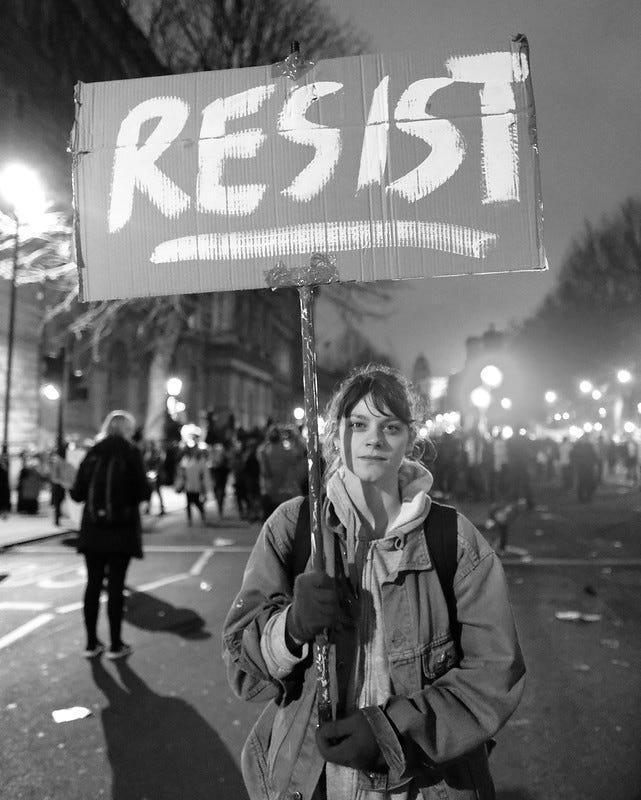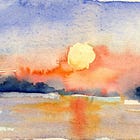To be loved as to love:
So, St. Francis wants us to love our fellow humans; ho hum. But . . . what if he means something much bigger? Maybe he’s advising us to love everything. I’ve noticed how alive I feel when doing things I love: designing or writing or teaching. My heart glows warm and the work flows easily.
Come to think of it, I also love to play the piano and watercolor. And to walk in the forest, and sail on the Chesapeake Bay and explore its rivers and creeks. And play cards by the fire with my son and husband. And pick tomatoes in the garden and eat them still warm from the sun. What if St. Francis, in this one sentence, is giving us all permission to do what we love and to be what we love? To celebrate what nourishes and connects us to the breathing earth and to each other?
David Abram teaches that eros—love—is an actual force, like gravity, that binds us to the earth. He advocates conscious surrender to it. To let the flow of love emerge through our senses as awe, wonder, and gratitude. To give free rein to imagination, to feel the reciprocity of being noticed back, of being sensed by oak or osprey or stream. That feeling of being in love with all of creation is our birthright. Honestly, we can’t help it.
In seeking not to be loved but to love, I remind myself to turn outward, and, further, to open my heart, my eyes and ears, my skin and nose and even my mouth. To experience the ecstatic reality of my body being a threshold between inner and outer through touch, sight, hearing, smell, and taste . Eros awakens the senses, calls me to feel myself as a doorway between the material world “out there” and the inner light of spirit.
Don’t go back to sleep
The breeze at dawn has secrets to tell you.
Don’t go back to sleep.You must ask for what you really want.
Don’t go back to sleep.People are going back and forth across the doorsill
where the two worlds touch.The door is round and open.
Don’t go back to sleep.Rumi
To be in love with everything is to say yes to the world. In the case of sunsets, the full moon, a sleeping child, and puppies, that’s easy (especially if it’s someone else’s puppy). But what about the Enbridge Line 5 pipeline, or creeping fascism, or trans hate, or climate chaos? Surely St. Francis isn’t asking me to love all that, too? I’m stumped by this, becalmed, stuck. Resistant.

I can say this: Death’s presence colors all my days. I know that death is a condition of being here, that it’s nothing short of a miracle that I’m here at all. Being with my parents in their final days, holding my father’s hand as he left us, I was surprised at how intimate death was. It felt ordinary in the sense that everyone will experience it, but also incredibly special, an honor to witness. Death is more like birth than I realized. All irrelevance and distraction are pushed aside. Only love remains. Love and grief and a kind of joy.
On good days, it feels like the more love I give, the more there is to give. Love is sourced from a bottomless well. When love seems scarce or absent, other factors must be at play. Maybe I’m tired or hurt, worried or hurried—something throws a veil over my heart.
The limitations and conditions I place on love reflect my own doubts and fears and wounds. Psychology teaches that what we love outside of us mirrors hidden places deep within—luminous qualities we’re unaware of in ourselves. This projection looks like hero worship or putting someone on a pedestal, convinced you’ll never be as wonderful as they are, you don’t deserve them. Not a recipe for a healthy relationship.
When I’m aware that to show love is to love myself, the whole game changes. I can move on to loving even the unlovable parts of myself, which—guess what?—are also projected onto other people. That guy who annoys me with his indecision and anxiety? He is me. That woman screaming profanities at her child on the street? Me.1
Today I will remember that reciprocity is as present as gravity. In loving, I know that I am loved. In seeking to be loved, I’m bewildered by unworthiness. In the face of negativity or evil or simply a miserable personality, the response that St. Francis calls me to is love. There is something magical about the simple act of sending out love: it summons a deep inner knowing that I am loved.
The previous line of the prayer, To be understood as to understand, is here.
Start at the beginning of the series:
Thanks for being here on this journey through St. Francis’ prayer. If you missed Thursday’s Reciprocity interview with the wonderful nature writer, John Lovie, you can read it here.
If you enjoyed this post, a lovely ❤️ keeps me going. Another way to show love is to share this post with others by restacking it on Notes, via the Substack app. Thanks!
Zen Buddhist monk Thich Nhat Hahn’s great poem, Please call me by my true names, says it all.







"What if St. Francis, in this one sentence, is giving us all permission to do what we love and to be what we love? To celebrate what nourishes and connects us to the breathing earth and to each other?" Such a lovely, lovely thought. Thank you, Julie.
Another wonderful essay! Your thoughts on love echo one of my favorite movie quotes. It's from Marvin's Room, when Bessie, who has been a longtime family caregiver, tells her sister Lee how lucky she has been:
Bessie : Oh, Lee, I've been so lucky. I've been so lucky to have Dad and Ruth. I've had such love in my life. You know, I look back, and I've had such... such love.
Lee : They love you very much.
Bessie : No, that's not what I mean. No, no... I mean that I love them. I've been so lucky to have been able to love someone so much.